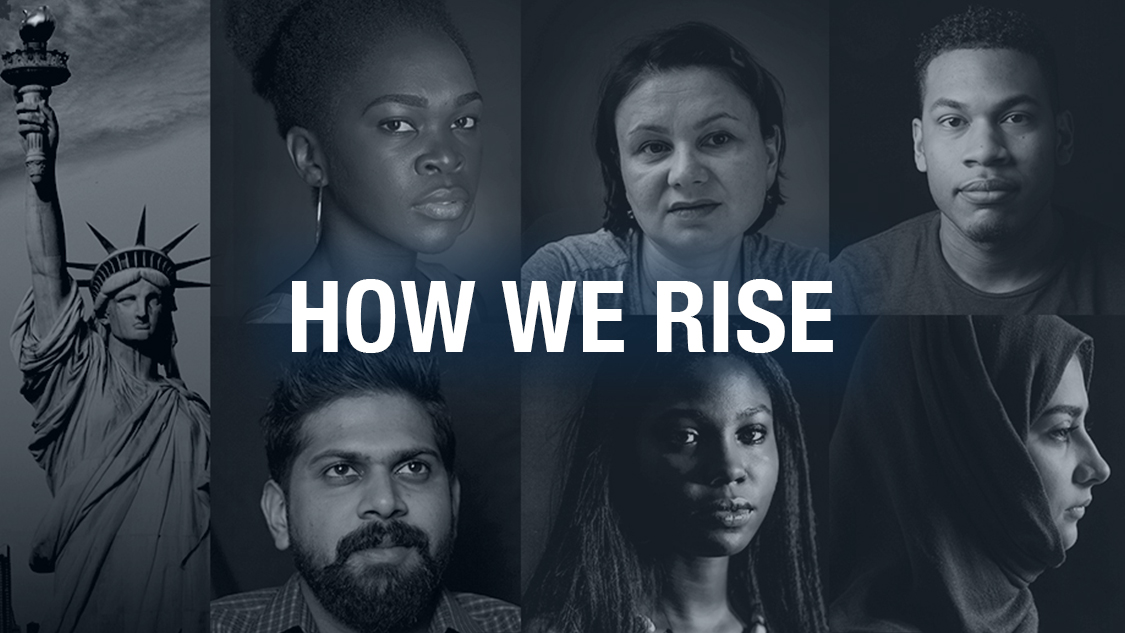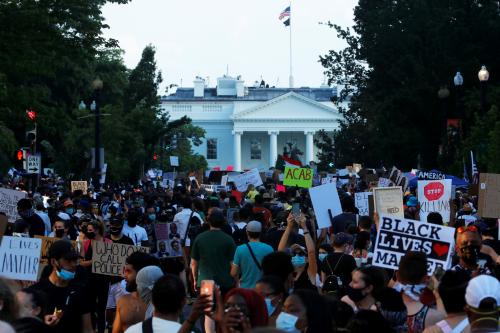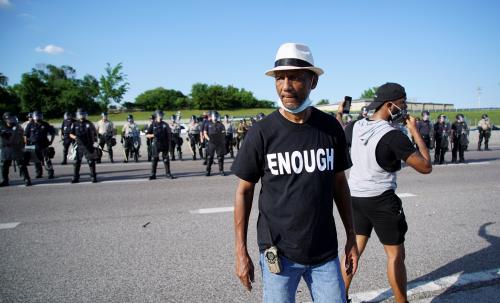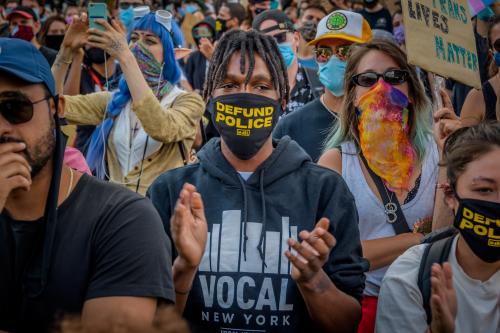Freedom is typically measured by the absence of coercion and our discussions of liberty are thus focused on what the state does—or does not do—to individuals and groups. Government, particularly its policing power, is thus at the center of our debates about what it means to be free and to be treated fairly. In the case of law enforcement, this is literally a matter of life and death, and demands for reform are urgent.
But freedom involves something else as well: The ability to choose one’s own ends and purposes. Here, the resources available to individuals, families and groups are decisive. And this is why the wealth gap between whites and African-Americans must become a far more urgent matter to our nation.
The black/white wealth gap has been much noted, and yet it has drawn little in the way of policy response, in part because inequalities of wealth generally have, until recently, been far less of a focus for policy-makers than inequalities of income.
This can be explained by factors related to ideology and power, of course, and also by the fact that policies to redistribute income—from Social Security to the Earned Income Tax Credit—have become an accepted part of the social insurance state.
The facts are stark: As Kriston McIntosh, Emily Moss, Ryan Nunn and Jay Shambaugh noted in a Brookings paper in February on the basis of 2016 data, the net worth of a typical white family is $171,000, ten times greater than that of a Black family ($17,150).
An important source of the racial wealth gap is neighborhood segregation. For most Americans, their residences are their major source of wealth, and the gulf in the evaluation of homes in white and African American neighborhoods is enormous, as Brookings’ Andre M. Perry, Jonathan Rothwell and David Harshbarger showed.
“Majority-black neighborhoods hold $609 billion in owner-occupied housing assets,” they wrote in 2018, and “in the average U.S. metropolitan area, homes in neighborhoods where the share of the population is 50 percent black are valued at roughly half the price as homes in neighborhoods with no black residents.”
Compounding this effect is the gap in home ownership itself. A study by Harvard University’s Joint Center for Housing Studies found that 72.3 percent of white Americans owned a home in 2017, compared with just 46.2 percent of Latinos and 43.1 percent of African-Americans.
Reducing the wealth gap should be a central concern for all committed to racial justice and social justice. McIntosh and her colleagues rightly point to how “income from inheritances, and from wealth more generally, is taxed at an inequitably low rate, especially when compared to earnings.” They argue that “well-designed taxes on inheritances, reforms to capital income taxation and even taxes on wealth could be part of the solution.”
But what of the other side of the equation? What policies can begin to build wealth for African-Americans and lower income Americans generally?
One promising path has been championed by Sen. Cory Booker, building on what have come to be called “baby bonds.” Booker proposes “creating a federally-funded savings account for every child at birth seeded with $1,000 and that could grow by up to $2,000 every year thereafter depending on family income.”
“By the age of 18,” Booker says, “low-income account-holders would have access to nearly $50,000 in seed capital to do the kind of things that create wealth and change life trajectories, including putting a down payment on a home.” He would pay for his plan by restoring 2009-era estate tax rules and closing loopholes that allow wealthy households to avoid paying taxes on investments held at death.
Account holders could not access the funds until age 18, and could use them only for specified purposes, among them education, home ownership, and retirement. As Vox’s Sarah Kliff noted, Booker’s plan is structured to be especially beneficial to Americans at or below 175 percent of the Federal Poverty Line, with the largest benefits going to those below the poverty line.
The plan is income-based, not race-based, so it would benefit lower income whites in large numbers. But because of the racial and ethnic income gap, it would be especially beneficial to African-Americans and Latinos. Over time, federal payments to members of both groups would be nearly double those to whites.
“A lot of aspects of our tax code, the benefits are usually used by the wealthy,” Booker told Kliff. “It’s time we start to give less-wealthy families the same opportunity.”
Baby bonds are no cure-all. But they begin to build a framework for addressing the wealth gap. “Freedom from” is an essential concept to protect individuals and groups from abuses by government. But “freedom to” speaks to the imperative of enhancing the capacity of individuals to choose their own paths forward. Accumulating savings and wealth is part of that freedom.
The Brookings Institution is committed to quality, independence, and impact.
We are supported by a diverse array of funders. In line with our values and policies, each Brookings publication represents the sole views of its author(s).








Commentary
Baby bonds can help close the wealth gap for Black Americans
June 18, 2020